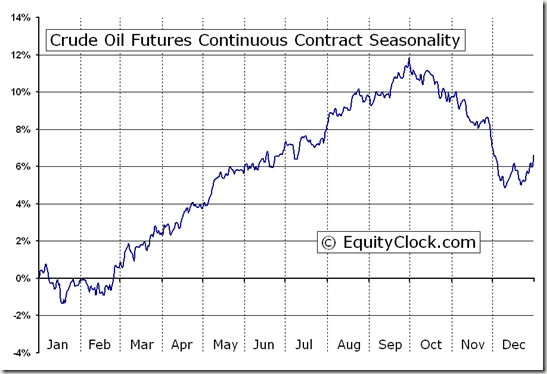The summer days are heating up, but oil and natural gas investors have been left out in the cold so far in 2017. With persistent supply gluts weighing on prices, traders are trying to figure out whether oil or gas (or neither) makes for the better trade during the summer months.
So far in 2017, the United States Oil Fund LP (ETF) USO 1.27% is down 21.2 percent, while the United States Natural Gas Fund, LP UNG 0.45% is down 26.6 percent.
EquityClock.com compiled historical data on oil and gas futures prices from 1991 to 2009 to produce charts of the seasonal fluctuations in prices.
Natural gas prices have historically trended steadily higher from February to June before sharply declining to a seasonal low point by early September. If that historical trend is correct, gas prices have more downside ahead over the next three months.

Oil prices, on the other hand, typically demonstrate seasonal strength during the summer months. The seasonal trends chart indicates that oil prices bottom in January before steadily rising until peaking in late September.

But before traders go setting up long oil/short gas pair trades for summer 2017, it’s important to note that the trade hasn’t performed well in the past several years. Since 2012, from June 16 to September 16, the USO ETF has averaged a -3.4 percent return. In that same stretch the UNG ETF has averaged a slightly better -2.3 percent return.
One explanation for the breakdown in seasonal trading trends is that there is simply too much going on from a fundamental perspective at the moment. Seasonal supply and demand trends are getting drowned out by headlines of historically-high stockpiles, global production cuts and a potential shift in the global oil power structure away from Saudi Arabia and other OPEC producers.
Oil has historically been the better summer play than natural gas. However, don’t expect that trend to hold up in 2017.
“Last week is…
Click here to continue reading
Want to learn more about how to profit off the stock market? Or maybe you just want to be able to look sophisticated in front of your coworkers when they ask you what you are reading on your Kindle, and you’d prefer to tell them “Oh, I’m just reading a book about stock market analysis,” rather than the usual “Oh, I’m just looking at pics of my ex-girlfriend on Facebook.” For these reasons and more, check out my book, Beating Wall Street with Common Sense. I don’t have a degree in finance; I have a degree in neuroscience. You don’t have to predict what stocks will do if you can predict what traders will do and be one step ahead of them. I made a 400% return in the stock market over five years using only basic principles of psychology and common sense. Beating Wall Street with Common Sense is now available on Amazon, and tradingcommonsense.com is always available on your local internet!


